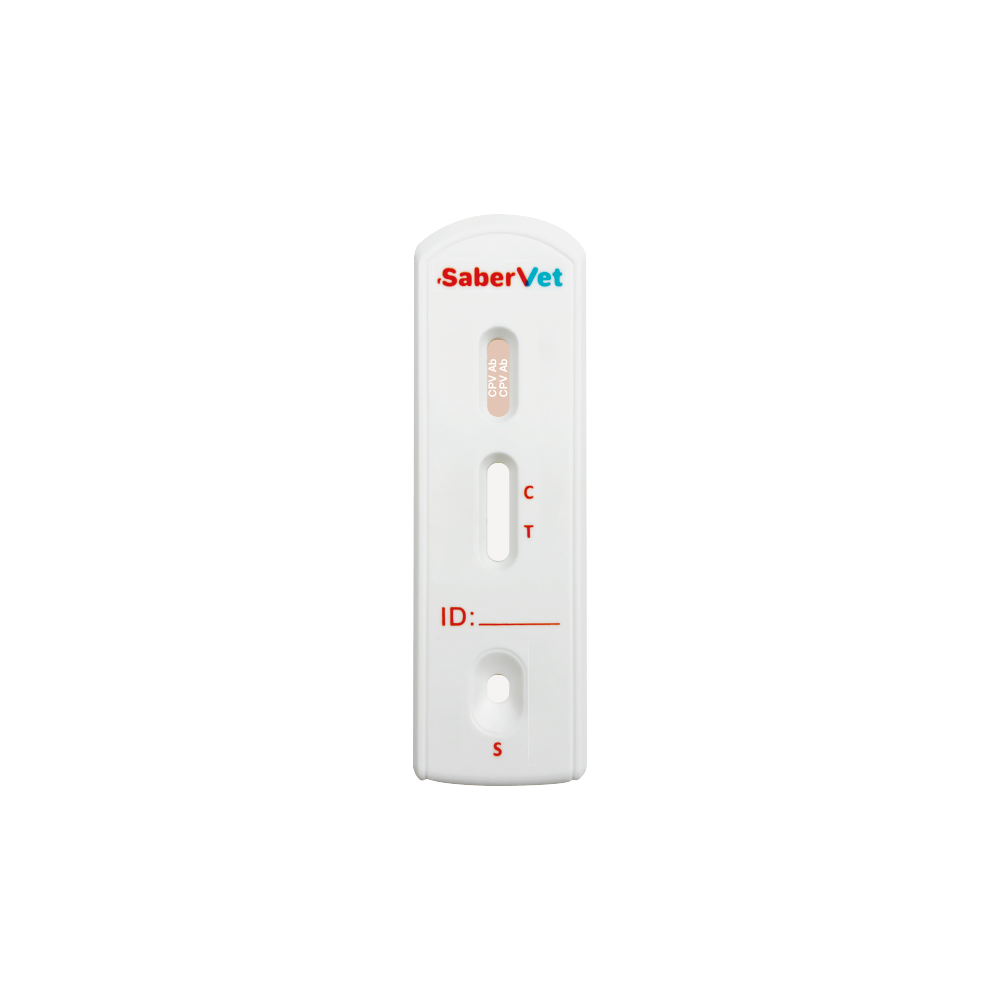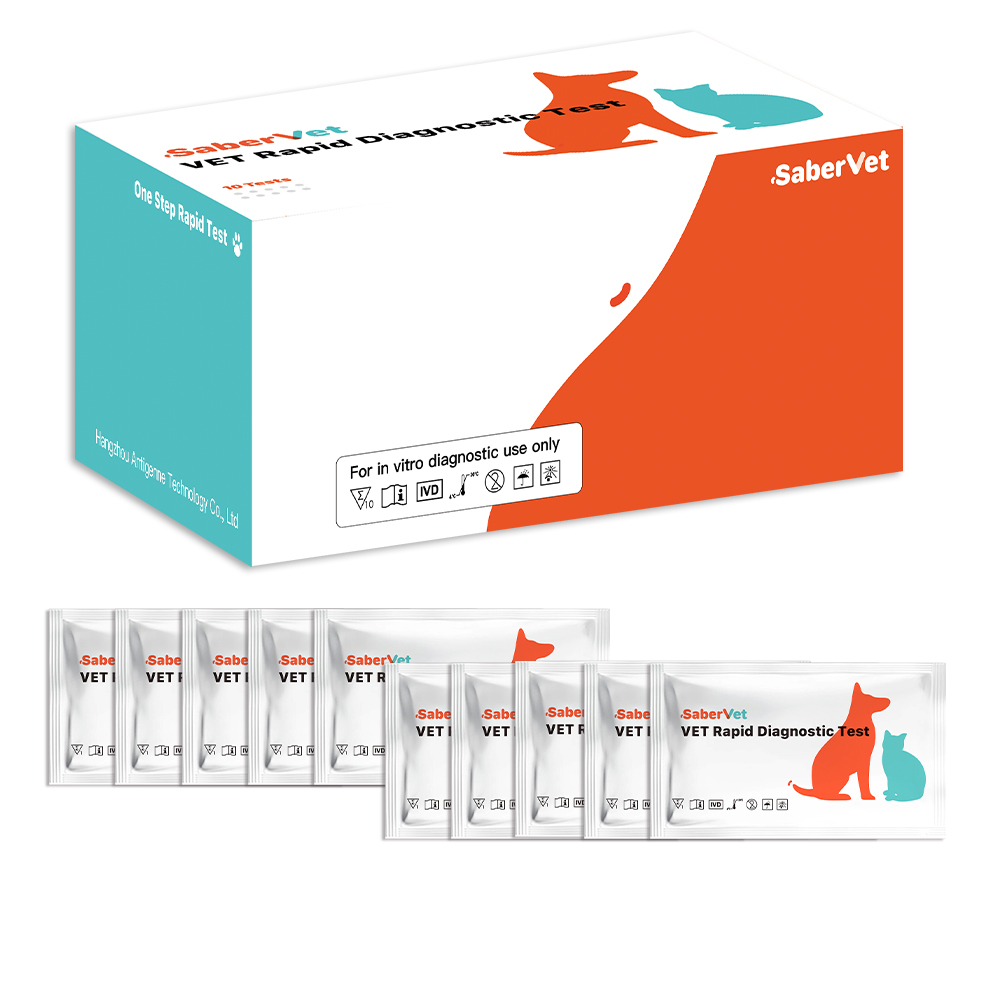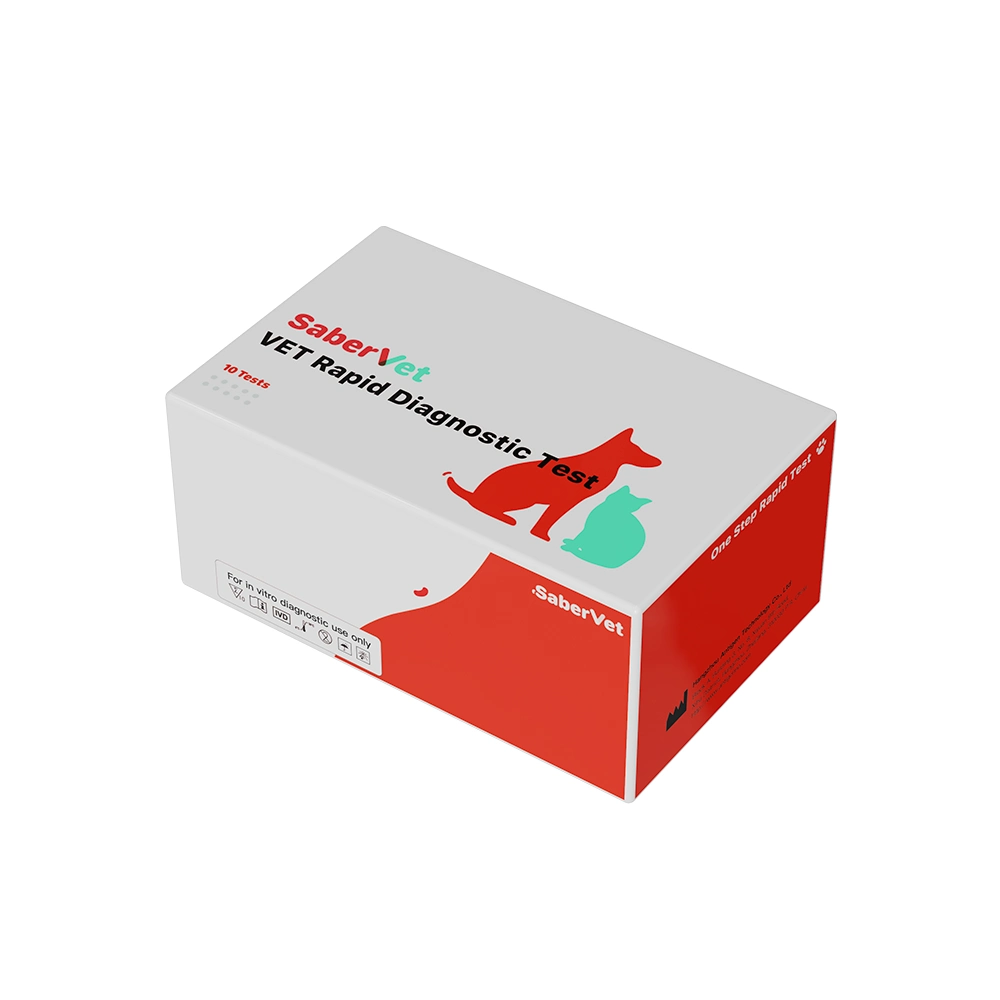Canine poliovirus is a highly contagious and deadly virus that is especially harmful to puppies. The virus is transmitted through direct contact with feces, vomit and contaminated objects of infected dogs, causing severe damage to the intestinal tract and immune system. So parvo testing is an integral part for the healthy growth of your pet.
Harmful effects of canine poliovirus
Severe gastrointestinal damage:
Diarrhea and Vomiting: Infected dogs will experience severe vomiting and watery or bloody diarrhea, resulting in a significant loss of fluids and electrolytes from the body.
Intestinal damage: The virus attacks the intestinal epithelial cells, resulting in intestinal hemorrhage and necrosis, severely affecting digestion and absorption.
Immune system damage:
Leukopenia: the virus attacks the leukocyte precursor cells in the bone marrow, leading to a drastic reduction in the number of leukocytes, causing the dog’s immune system to collapse.
Secondary Infections: Due to the compromised immune system, the dog is prone to secondary bacterial infections that exacerbate the condition.
Systemic Failure:
Dehydration and Electrolyte Imbalance: Severe vomiting and diarrhea lead to dehydration and electrolyte imbalance, which if not rehydrated and corrected in a timely manner, can lead to shock and death.
Myocarditis: Some infected dogs may develop myocarditis, which manifests as heart failure and is especially common in puppies.
Why vaccinate your dog?
Vaccination against canine poliovirus is the most effective measure to prevent the disease. The importance of vaccination includes:
Providing immune protection
Inducing antibody production: The vaccine provides immune protection by stimulating the canine immune system to produce specific antibodies against Canine Tiny Virus.
Preventing infection: Even if a vaccinated dog is exposed to the virus, the antibodies in the body can quickly neutralize the virus and prevent it from developing.
Reduces the spread of disease
Herd immunization: Through mass vaccination, a herd immunity barrier can be established to reduce the spread of the virus in the dog population.
Protection of vulnerable groups: vaccination can protect puppies that are not yet fully immunized and older dogs with weakened immunity.
Reduce treatment costs
Reduces medical costs: Prevention is better than cure, and the cost of vaccination is far less than the medical costs of treating canine microvirus infections.
Avoid suffering and death: Vaccination significantly reduces the risk of canine infection with Tiny Virus and avoids the suffering and death associated with the disease.
Why do you need to parvo tests for dogs for antibodies after vaccination?
canine parvovirus test kit after vaccination is of great significance, mainly including the following aspects:
Evaluate the effect of immunization:
Confirming the success of immunization: by testing the antibody level in the dog’s body. Canine parvo test kit can be confirmed whether the response to the vaccine is strong enough to determine whether effective immune protection has been obtained.
Determining the need for booster shots: If antibody levels are low, booster vaccinations may be needed to ensure adequate immune protection.
Preventing immunization failure:
Identifying causes of immunization failure: Some dogs may fail immunization due to individual differences, health conditions or vaccine quality, and antibody testing can help identify these problems.
Taking remedial measures: Dogs that are found to have failed immunization through antibody testing can be remedied in a timely manner, such as revaccination or adjusting immunization strategies.
Safeguard health:
Monitor immunization durability: Regular testing of antibody levels can monitor the durability of a dog’s immunity and ensure that it receives enhanced protection before the vaccine’s effectiveness declines.
Protect against infection risk: Antibody testing identifies gaps in immunization and prevents dogs from being exposed to high-risk environments when antibody levels are low.
Scientific management:
Individualized vaccination plan: Antibody test data can be used to develop a personalized vaccination plan for each dog, improving the overall effectiveness of immunization.
Data Support for Epidemic Decision Making: Antibody test data provides a scientific basis for epidemic decision making and helps to formulate more effective preventive and control measures.
Canine Parvovirus Antibody Rapid Test
Antigenne has developed a canine Parvovirus antibody Rapid test to help users detect antibody levels after vaccination, thus effectively preventing and controlling the spread of canine SBV and providing better health protection for dogs.














